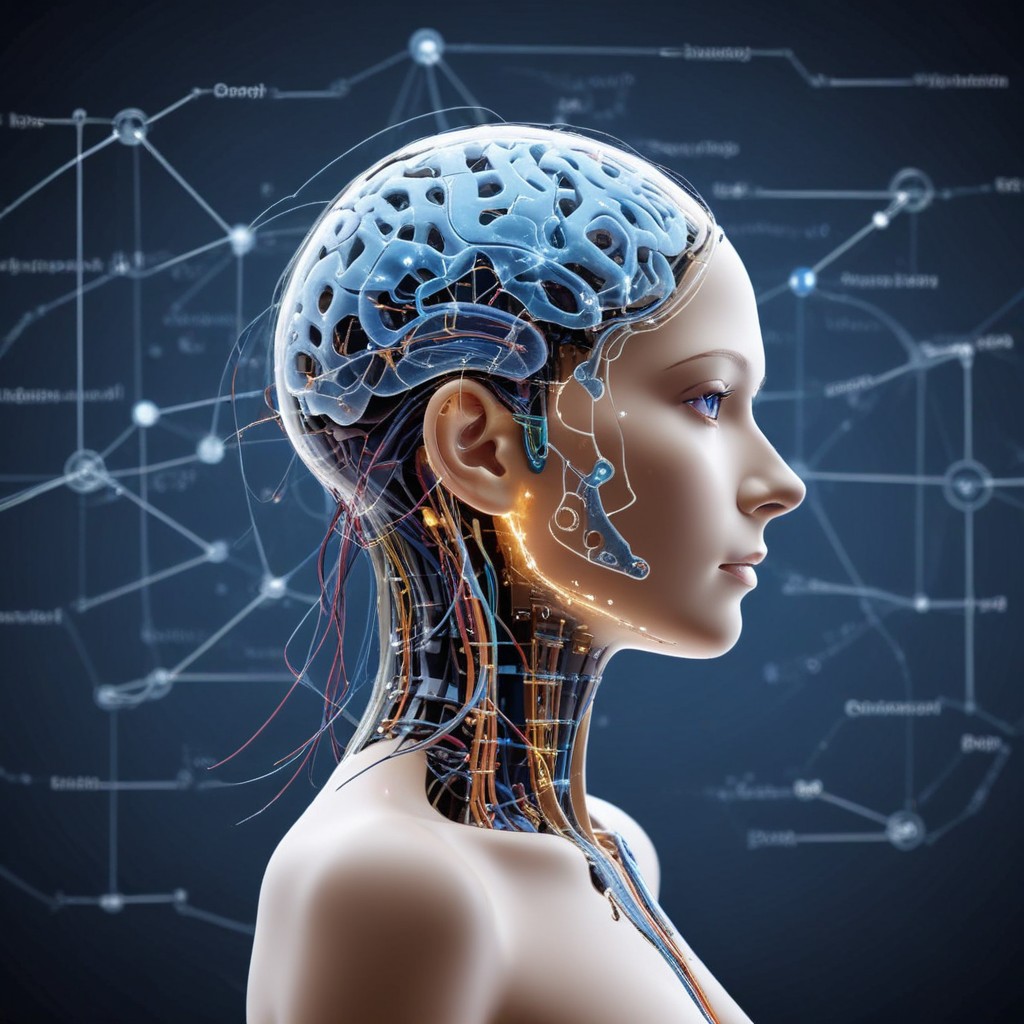
Introduction, Benefits, and Use Cases
Introduction to AI Platforms
Artificial intelligence (AI) is transforming how businesses operate, enabling data-driven decision-making and automating repetitive tasks. AI platforms provide the necessary tools and infrastructure to build, deploy, and manage AI applications efficiently. Through the utilization of machine learning, natural language processing, and additional AI technologies, businesses can acquire valuable insights, optimize operations, and elevate customer experiences.
What Are AI Platforms?
AI platforms are integrated environments combining various AI technologies like machine learning, natural language processing, and computer vision to facilitate the creation of sophisticated AI solutions. These platforms support the end-to-end lifecycle of AI projects, from data analysis to model training and deployment. They provide a range of tools, algorithms, and infrastructure as a service, enabling users to develop and train machine learning models and deploy them in production environments.
The Need for AI Platforms
The rapid advancement of artificial intelligence makes it essential for organizations to leverage AI platforms. These platforms streamline the workflow and allow businesses to integrate AI seamlessly into their existing business processes. AI platforms offer a more accessible and efficient way to adopt AI technologies, helping businesses stay competitive and drive innovation.
Benefits of AI Platforms
AI platforms offer numerous advantages to businesses:
Enhanced data-driven decision-making: AI platforms enable organizations to analyze large volumes of data, uncover patterns, and make informed choices, leading to better strategic decisions.
Higher customer satisfaction: AI-powered solutions can provide instant and personalized responses to customer inquiries, improving satisfaction and loyalty.
Efficiency in business processes: AI platforms automate repetitive and time-consuming tasks, freeing up resources for more strategic initiatives and improving overall operational efficiency.
Access to cutting-edge AI technology: AI platforms offer a range of advanced AI tools and technologies, such as machine learning models, natural language processing, and computer vision, enabling businesses to stay at the forefront of innovation.
Key Components of AI Platforms

Machine Learning Models
Machine learning models are at the heart of AI applications. They are designed to learn from historical data to make predictions and drive business insights. These models can be trained to identify patterns, detect anomalies, and provide valuable insights for various industries, including finance, healthcare, and retail.
AI Solutions
AI platforms provide a variety of AI solutions tailored to meet different business needs. These solutions range from predictive analytics and customer service to robotic process automation to image recognition and natural language processing-based applications. AI platforms enable businesses to leverage AI for improved operations and enhanced customer experiences.
Natural Language Processing
Natural language processing (NLP) empowers machines to comprehend, interpret, and produce human language.This technology is crucial for tasks like AI-powered chatbots, sentiment analysis, and language translation, enhancing customer interactions and improving communication.
AI Models
AI platforms support a range of AI models, including pre-trained and customizable models. These models can be trained on vast datasets, making them capable of performing complex tasks like deep learning, image recognition, and text analysis. AI models are continuously learning and improving, adapting to new data and enhancing their performance over time.
Data Scientists
Data scientists play a critical role in developing and fine-tuning machine learning models on AI platforms. They ensure that the models deliver accurate and actionable insights by applying their expertise in data analysis, machine learning algorithms, and model training. Data scientists are key to unlocking the potential of AI platforms for businesses.
AI Consulting Services
AI consulting services are invaluable for businesses seeking to adopt AI technologies. AI consultants provide expertise in AI technology and artificial intelligence consulting services to help in the successful implementation of AI projects. They guide organizations through strategy development, technology selection, and AI integration, ensuring businesses maximize the benefits of AI while minimizing potential risks and challenges.
Functionalities of AI Tools
AI Systems
AI systems are the backbone of AI platforms, integrating various components of ai software like machine learning algorithms, data analysis tools, and model deployment capabilities. They provide AI capabilities with the infrastructure and computing power necessary to train and run machine learning models effectively.
AI and Machine Learning
Integrating AI and machine learning is fundamental to developing robust AI applications. Machine learning algorithms enable AI systems to learn from data, identify patterns, and improve over time. This continuous machine learning platform capability offers significant return on investment (ROI) and enables businesses to make data-driven decisions.
AI Technology
The evolution of AI technology has led to the development of advanced AI systems capable of using artificial intelligence and performing tasks that previously required human intelligence. AI technology includes machine learning, natural language processing, computer vision, and more. These technologies work together to make artificial intelligence and enable AI platforms to provide valuable insights, automate tasks, and enhance decision-making.
AI Projects
Successfully executing AI projects requires a combination of the right technologies, skilled professionals, and effective project management. AI platforms offer ai solution of tools and services to support the entire AI project lifecycle, from data collection and model training to deployment and maintenance.
AI Implementation
AI implementation involves deploying AI models in a production environment where they can be used to solve real-world problems and enhance operations. AI platforms provide the necessary tools and infrastructure for seamless AI implementation, ensuring that AI solutions are integrated effectively into existing business processes.
Specialized AI Technologies

Computer Vision
Computer vision technologies enable machines to interpret visual information, such as images and videos, in a way similar to human vision. This technology is essential for applications like image recognition, object detection, and autonomous driving. Computer vision empowers AI systems to understand and interact with the visual world.
AI Algorithms
AI algorithms form the foundation of machine learning models, determining how systems learn from data and make decisions using AI and machine learning. These algorithms include classification, regression, clustering, and reinforcement learning algorithms, each of AI algorithm is designed for specific types of data and tasks. AI platforms provide a range of customizable algorithms, enabling businesses to build AI solutions tailored to their needs.
Data-Driven Decision Making
AI platforms enhance data-driven decision-making by providing comprehensive data analysis capabilities. They enable organizations to gather insights from various data sources, identify patterns, and make informed choices. AI platforms empower businesses to move beyond guesswork and intuition, leading to more effective strategies and improved outcomes.
AI Solution
A robust AI solution is critical for addressing specific business challenges. Whether it's improving customer satisfaction, optimizing operations, or gaining a competitive edge, AI platforms offer tailored solutions. By leveraging machine learning, natural language processing, and other AI technologies, businesses can develop AI solutions that drive growth and enhance performance.
Advanced AI Techniques
Machine Learning Algorithms
Machine learning algorithms are designed to identify patterns in data, which is crucial for predictive analytics and other advanced AI applications. These algorithms enable AI systems to learn from historical data, make predictions, and improve over time. With each iteration, machine learning algorithms enhance their accuracy and adaptability.
Data Analysis
Data analysis on AI platforms involves examining large datasets to draw conclusions and inform decision-making processes. AI platforms provide tools for data cleansing, validation, and interpretation, ensuring that data-driven decisions are based on accurate and reliable information.
Generative AI
Generative AI is a rapidly evolving field that focuses on creating new data, such as images, videos, or text, based on input patterns. This technology has already made an impact in content creation and is expected to revolutionize drug discovery and synthetic data generation for AI model training.
AI Consulting as a Service
The Role of AI Consulting
AI consulting services that provide strategic advice on AI adoption, helping businesses implement the right AI solutions for maximum benefit. AI consultants offer expertise in strategy development, technology selection, data science, and model training. They guide organizations through the complexities of AI integration, ensuring a successful and smooth transition to AI-powered operations.
AI Strategy
Developing an effective AI strategy is essential for any organization looking to leverage AI for business transformation. This involves understanding the business needs, identifying use cases, and aligning them with AI capabilities. AI consultants help organizations define a clear AI roadmap, ensuring that AI initiatives are well-planned and aligned with their goals.
Benefits of AI Consulting
Engaging AI consulting services offers several advantages, including access to specialized expertise and advanced technologies. AI consultants bring deep knowledge of AI tools, machine learning models, and industry best practices. They help organizations avoid common pitfalls, accelerate time-to-market, and tailor AI solutions to meet specific business requirements.
Software Development and AI

AI Software
AI software development involves creating applications that leverage AI technologies to solve complex problems and improve business operations. AI platforms provide the tools and infrastructure necessary for AI software development, enabling developers to build intelligent and innovative artificial intelligence solutions anywhere.
Predictive Analytics
Predictive analytics is an AI-driven approach to forecasting future trends and making informed decisions based on historical data. AI platforms offer predictive analytics capabilities, enabling businesses to anticipate customer needs, optimize operations, and make strategic choices with confidence.
AI Technologies
Utilizing advanced AI technologies, such as machine learning, natural language processing, and computer vision, organizations can gain a competitive edge. These technologies automate tasks, enhance accuracy, and improve overall efficiency. AI platforms make these technologies accessible to businesses, driving innovation and growth.
Google Cloud and AI
Platforms like Google Cloud offer comprehensive AI services that can be integrated into existing business systems. Google Cloud provides AI tools for data analysis, natural language processing, and machine learning model development. With Google Cloud, businesses can leverage scalable and flexible infrastructure to build and deploy AI solutions.
Robotic Process Automation
Robotic process automation (RPA) leverages AI to automate repetitive and manual tasks, such as data entry and report generation. RPA frees up human resources, allowing employees to focus on more strategic and creative activities. RPA, combined with AI platforms, streamlines operations and improves overall productivity.
AI Expertise and Talent
AI Consultants
AI consultants provide the necessary expertise and support for businesses adopting AI. They guide organizations through the complex world of AI, offering insights on technology selection, strategy development, and ethical considerations. AI consultants ensure that businesses make well-informed decisions and avoid potential pitfalls when integrating AI.
Data Science
Data science is a critical component of AI, involving statistical methods, using machine learning tools, and data analysis. Data scientists are responsible for preparing data, building and training models, and extracting valuable insights. They play a key role in developing AI solutions that drive business success.
Business Processes
Integrating AI into business processes can significantly improve efficiency, accuracy, and outcomes. AI platforms offer tools to automate and optimize various business processes, including customer service, supply chain management, and financial operations. AI enables businesses to streamline their operations and enhance their performance.
AI Platform
A comprehensive AI platform facilitates the development and deployment of AI solutions, ensuring they meet business requirements. AI platforms provide the necessary tools, infrastructure, and support to build, train, and deploy machine learning models effectively. They offer a range of services, from data management to model deployment, making AI adoption more accessible and successful for businesses.
Implementing AI Solutions
AI Software Development
Developing AI and AI software development often requires a systematic approach, including data collection, model training, and testing. AI platforms provide the necessary tools and infrastructure for each stage of AI software development, enabling developers to build intelligent applications efficiently.
Implementing AI Solutions
Successfully implementing AI solutions involves a strategy of careful planning, execution, and ongoing monitoring. AI platforms offer tools for seamless integration, performance optimization, and continuous improvement, ensuring that AI solutions deliver the desired results.
Integrating AI Solutions
Integrating AI solutions into existing systems requires a deep understanding of both the technology and business processes. AI platforms provide tools and services to facilitate this integration, ensuring AI solutions work harmoniously with existing infrastructure and enhancing overall functionality.
Artificial Intelligence and Analytics
Artificial Intelligence
Artificial intelligence encompasses a range of technologies that enable machines to mimic human intelligence and perform tasks such as problem-solving and learning. AI platforms provide the tools and infrastructure necessary to develop and deploy AI solutions, harnessing the power of machine learning, natural language processing, and more.
Advanced Analytics
Advanced analytics leverages AI and other machine learning tools to analyze data and uncover actionable insights. AI platforms enable organizations to go beyond basic data analysis, providing predictive capabilities and in-depth understanding. Advanced analytics drives data-driven decision-making and strategic business moves.
Model Training
Model training is a crucial step in developing AI models. AI platforms offer tools for data collection, model building, and training, ensuring that models learn from historical data and improve over time. This iterative process enhances the accuracy and adaptability of AI solutions.
AI Applications
- AI has a wide range of applications across industries, including:
- AI-powered chatbots and virtual assistants
- Predictive analytics for forecasting and decision-making
- Image recognition and object detection
- Natural language processing for language understanding and generation
- Fraud detection and anomaly detection
- Customer service and experience enhancement
AI platforms enable businesses to develop and deploy these AI applications, unlocking new possibilities and driving innovation.
Software Development and Deployment
Software Development
Software development for AI involves creating applications that incorporate AI technologies to perform complex tasks efficiently. AI platforms provide the necessary tools, frameworks, and infrastructure for developers to build intelligent and innovative artificial intelligence solutions together.
Deploying AI Solutions
Deploying AI solutions requires meticulous planning and execution. AI platforms offer tools for seamless deployment, integration, and monitoring, ensuring that AI solutions are successfully integrated into existing business operations.
Customer Satisfaction and AI
Customer Satisfaction
Enhancing customer satisfaction is a key benefit of AI solutions. AI-powered chatbots, natural language processing, and predictive analytics enable businesses to provide personalized and responsive customer service. By understanding customer needs and preferences, AI solutions improve customer interactions and increase satisfaction.
Cloud-Based AI Services
Cloud-based AI services offer scalable and flexible solutions for businesses looking to leverage AI. AI platforms provide cloud infrastructure, enabling businesses to develop and deploy AI solutions without significant upfront investment. Cloud-based AI also ensures accessibility and collaboration, allowing teams to work together effectively.
Predictive Models and Google Cloud Services
Predictive Models
Predictive models use historical data to make forecasts and inform decision-making. AI platforms offer tools for building and deploying predictive models, enabling businesses to anticipate customer needs, optimize operations, and reduce risks.
Other Google Cloud Services
In addition to AI, Google Cloud offers a range of tools and platforms for data storage, computing, and analytics. These services complement AI solutions, providing businesses with a comprehensive suite of tools to enhance their operations and gain insights.
Computer Vision Technologies
Computer vision technologies enable machines to interpret and process visual information. Applications include quality inspection, security surveillance, and image recognition. AI platforms provide computer vision tools, enabling businesses to leverage visual data and gain insights from images and videos.
AI in Customer Service and Supply Chain
Customer Service Inquiries
AI-powered chatbots and sentiment analysis tools enhance customer service by providing instant and personalized responses to customer service inquiries and inquiries. AI platforms enable businesses to deliver efficient and effective customer support, improving satisfaction and loyalty.
Google Cloud Services
Google Cloud offers a range of AI tools that can be integrated into existing systems, enhancing functionality. These tools include natural language processing, machine learning models, and data analysis capabilities, empowering businesses to leverage AI for improved operations and customer interactions.
Deep Learning in Supply Chain Management
Deep Learning
Deep learning is a subset of machine learning that uses neural networks to analyze data and make decisions. This technology enables AI systems to learn complex patterns and relationships in data, leading to more accurate predictions and improved decision-making.
Supply Chain Management
AI can optimize supply chain management by predicting demand, optimizing inventory, and improving logistics. AI platforms offer tools for demand forecasting, inventory optimization, and route planning, enabling businesses to streamline their supply chain and reduce costs.
AI Consulting Services
Artificial Intelligence Consulting Services
AI consulting services provide expertise and guidance for businesses looking to implement and deploy AI technologies. AI consultants offer strategic advice, technology recommendations, and best practices to ensure a successful AI implementation. They help organizations navigate the complex world of AI and maximize its benefits.
Automation and Business Challenges
AI platforms can automate routine tasks and repetitive tasks, reducing manual effort and increasing operational efficiency. By leveraging AI technologies, businesses can free up resources for more strategic initiatives and improve overall productivity.
Solve Complex Business Challenges
AI platforms have the capability to solve complex business challenges. By providing data-driven insights, optimizing processes, and enabling better decision-making, AI platforms help organizations address critical issues and drive growth.AI Innovation and Adoption
AI Innovation
Continuous AI innovation drives the development of more advanced and efficient AI solutions. AI platforms provide the tools and infrastructure necessary for experimentation and development, enabling businesses to stay at the forefront of their industries.
AI Adoption
Successful AI adoption requires careful planning and a clear strategy. AI platforms offer guidance, best practices, and support to ensure a smooth transition to AI-powered operations. By choosing the right AI platform and technologies, businesses can maximize the benefits of AI.
Leveraging AI and AI Talent
Leveraging AI
Effectively leveraging AI can transform business operations, making them more data-driven and efficient. AI platforms provide the tools and infrastructure needed to incorporate AI into existing processes, enabling businesses to unlock new possibilities.
AI Talent
Building a team with the right AI talent is crucial for the successful deployment and management of AI solutions. Data scientists, business analysts, machine learning engineers, business analysts, and AI consultants bring essential skills and expertise to develop and optimize AI solutions over time.
Recognition
Conversational AI enhances customer interactions by providing intuitive and natural language-based communication. AI-powered chatbots utilize natural language processing to understand and respond to customer inquiries, improving customer engagement and satisfaction.
Image Recognition
Image recognition technologies enable AI systems to identify and classify objects within images and videos. This capability has a wide range of applications, including quality control, object detection, and autonomous navigation. AI platforms provide image recognition tools, empowering businesses to leverage visual data for improved decision-making and innovation.
AI Expertise and Complex Tasks
AI Experts
AI experts bring critical knowledge and skills to organizations. They have a deep understanding of AI technologies, machine learning algorithms, and data science. AI experts guide businesses through the complex world of AI, ensuring the successful development and deployment of AI solutions.
Managing Complex Tasks
AI platforms are designed to handle complex tasks that require extensive data analysis and decision-making. By leveraging machine learning and advanced analytics, AI systems can process vast amounts of data, identify patterns, and provide insights that were previously difficult to attain.
Historical Data and AI Chatbots
Historical Data
Leveraging historical data is vital for training machine learning models and developing accurate predictive models. AI platforms provide tools for data collection, storage, and analysis, enabling businesses to harness the power of historical data for improved decision-making and forecasting.
AI Chatbots
AI chatbots provide automated and personalized customer service. By utilizing natural language processing and machine learning, AI chatbots understand and respond to customer inquiries instantly, enhancing customer engagement and satisfaction. AI platforms offer tools for chatbot development, training, and integration.
Integrating AI and Cutting-Edge Technology
Integrating AI Solutions
Integrating AI solutions into existing systems involves ensuring compatibility and enhancing functionality. AI platforms provide tools and services to facilitate seamless integration, enabling businesses to maximize the benefits of AI.
Cutting-Edge Technology
Adopting cutting-edge technology, such as AI platforms, keeps businesses at the forefront of innovation and competition. These technologies offer advanced capabilities that can drive growth, improve efficiency, and enable businesses to stay ahead of the curve.
Conclusion on AI Platforms
Embracing AI platforms is essential for modern businesses aiming to stay competitive and innovative. AI platforms provide the necessary tools, infrastructure, and support to develop and deploy advanced AI applications. By harnessing machine learning, natural language processing, and other AI technologies, businesses can explore new opportunities, streamline operations, and elevate customer experiences.
As artificial intelligence continues to evolve, the potential applications and benefits of AI platforms will only grow. Businesses that embrace AI and integrate it into their operations will be well-positioned to solve complex challenges, drive growth, and deliver exceptional experiences to their customers.
The future of AI holds immense promise, with advancements in machine learning, natural language processing, and computer vision leading the way. Organizations that effectively utilize AI platforms will be able to harness the power of AI to transform their operations and stay ahead in a rapidly changing world.
Topics & Questions
What is an AI platform?
AI Platform is an integrated software platform that helps users develop intelligent models that work with any kind of data.
Is ChatGPT an AI platform?
ChatGPT is a chatbot developed for AI that can automatically generate conversational dialog. Language models respond to a question or compose varying written materials such as blogs, articles, and emails.
What is the most powerful AI program?
In a broad sense, Jasper is a highly advanced AI assistant that will help content marketing teams create original content in a timely manner. Jasper has a distinct feature in producing unique content without plagiarism.
What is an ML platform?
Machine learning platforms help developers develop, deploy and improve machine learning algorithms.
 How New AI Technologies Can Revolutionize Life as We Know It
How New AI Technologies Can Revolutionize Life as We Know It
 Your Guide to Cybersecurity
Your Guide to Cybersecurity
 Your Essential Guide to VPNs: Protect Yourself Online Today
Your Essential Guide to VPNs: Protect Yourself Online Today
 Dubai: Aiming to Be One of the Top 10 IT Hubs Globally
Dubai: Aiming to Be One of the Top 10 IT Hubs Globally